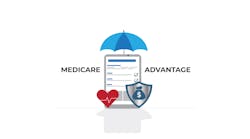The U.S. Department of Agriculture Food and Nutrition Service (FNS) is planning to do demonstration projects with state Medicaid agencies to evaluate the impact of using Medicaid eligibility data to directly certify students for free and reduced-price school meals.
Details about the new demonstration projects were described in a bulletin to state Medicaid agencies from Daniel Tsai, CMS deputy administrator and director of the Center for Medicaid and CHIP Services.
The Healthy Hunger-Free Kids Act of 2010 amended section 1902(a)(7) of the Social Security Act to permit Medicaid agencies to enter into data-sharing agreements with state agencies that administer the National School Lunch Program and School Breakfast Program. These data-sharing agreements allow the state agencies to directly certify students to receive both free and reduced-price school meals based on the child’s Medicaid eligibility and verified income.
Direct certification has the potential to improve student access to school meals, reduce administrative burden for schools and families, and improve certification accuracy, but cannot be used to negatively impact any child already certified for the free and reduced-price meals program.
On July 29, 2021, FNS invited state agencies that administer school meal programs to participate in a demonstration project to evaluate the impact of direct certification for both free and reduced-price school meals. USDA FNS issued previous opportunities for states to participate in direct certification demonstrations in 2012 and 2016. CMS said it encourages Medicaid agencies to work with their state agencies in considering this opportunity.
Changes in Medicaid eligibility and processes beginning in 2014 as a result of the Patient Protection and Affordable Care Act, including the shift to using Modified Adjusted Gross Income (MAGI) and the presence of new or modernized eligibility systems in state Medicaid agencies, have increased the identification of children eligible for both free and reduced-price meals. The new demonstrations will continue to evaluate the potential of direct certification to enroll new children, certify currently enrolled children, and impact participation in the free and reduced-price school lunch and breakfast programs.
States will be able to apply for funding to cover the associated project costs. Additional states will be able to apply to participate in the demonstrations in future years. State agencies that administer the school meals programs and are selected to participate in the demonstration projects must have an agreement in place with the partner state Medicaid agency before the data matching process begins.
Under the HIPPA Privacy Rule, CMS said, the state Medicaid agency is permitted to share with the school meals program individually identifiable information related to Medicaid eligibility and enrollment, provided that the Medicaid agency only discloses the minimum amount of information needed to certify or verify the child’s school meal eligibility.


